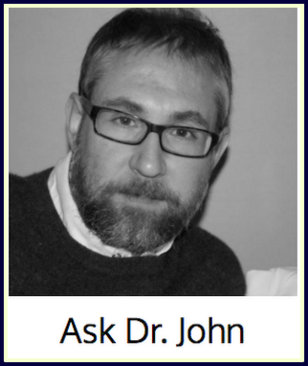
 “Merry Christmas!” everyone said.
“Merry Christmas!” everyone said.
“Is it?” I grumbled.
I was very sick on that Christmas Day, 1991. Coughing, fever, general fatigue. I was in Pennsylvania, visiting my family for the holidays, on break from seminary. The tree was up, and the presents were ready to be opened. It was cold outside and the heater in the apartment wasn’t quite able to keep up. Wrapped in blankets, and wearing as much flannel as I could find, I plodded out to the living room. and dropped my limp body onto the couch.
“Time to open presents!” someone exclaimed. My head felt heavy, and my mood was anything but Christmas-y. All I wanted to do was go back to bed. I went through the motions, ate a piece of toast and then exited the room with a groan, falling off into a Benadryl-induced haze.
When I woke up, my family had gone to my grandparent’s house, leaving me to sleep and recover. That was just fine with me. Later that night, my father stood over me, touching my forehead for signs of fever. Apparently, I was hot, and he helped me into a lukewarm shower to cool down.

A few days went by and I was on the upswing. My father, however, had taken on my sickness, much like Christ had taken on the sins of the world. When it was time to leave, the evening of January 2, 1992, he was eating soup at the kitchen table, wearing a bathrobe, and feeling the heavy sickness that used to be my affliction. For some reason, I uncharacteristically kissed him on the cheek when I said good-bye. It felt a little awkward and embarrassing to be kissing my father, who was not an affectionate man, but the urge struck and I pressed my lips to his cheek, prickly with white whiskers.
When I arrived back at school two hours later, the phone in my apartment rang (there were no cell phones back then.). It was my brother, calling to inform me that my father had passed away while I drove home. My world fell apart with that phone call.
I rushed back to see my family through all of the business of handling the death of a loved one. The role I took on was to deal with the bills, arrange the service, hire the funeral director, etc.
loved one. The role I took on was to deal with the bills, arrange the service, hire the funeral director, etc.
When I went back to school, I absorbed myself into my books, reading the material for my courses 8 or 9 times over. I knew more about the ancient kings of Israel than anyone. Their exploits on the battlefield and their personal weaknesses were rehearsed and recorded, keeping me busy day and night. There was no time to think about my father. Joab plunged his dagger into his cousin’s belly, and I was right there with him. King David slept with Bathsheba while her husband was away, and then sent her husband to the front lines of battle to have him killed, and there I was, looking on with disdain and judgment.
I gradually put myself back together but I was a lot like Mom’s favorite vase that the Brady boys broke when they played ball in the house: I looked OK on the surface, but there were cracks and fissures that would leak if put under too much pressure.
Even now, 27 years later, when I think of my father, I am filled with a host of overwhelming emotions. I still feel guilty that my sickness may have been the immunity-sucking source of his death. I feel sad that my father’s terrible childhood scarred him with chronic depression and suicidal thoughts. I yearn to give him one more kiss on that stubbly cheek, or to ask him questions about his life. I am jealous of others who can just call their father on his cell phone, and talk about the weather, or gleefully recall the details of the Philadelphia Eagles’ Super Bowl win.
I am also grateful for the opportunity to be a father myself, and to give myself to my children, so they can be happy and successful. I aspire to be a father whose children write heartfelt stories about me.
The most influential book on the subject of grief is by Elizabeth Kubler-Ross, called On Death and Dying. According to Dr. Kubler-Ross’ observations, people go through a variety of stages in the grief process. Some psychologists and grief counselors, although appreciative of Kubler-Ross’ incredible efforts to bring death and dying into the conversation, argue that stage theories like this are too simplistic in their depictions. Most of us don’t go through all of the stages, and many of us don’t go through them in the order that stage theorists suggest. The implication of these theories may be that, if your experience doesn’t match, you may be abnormal.
If you are grieving, don’t worry about any of that. The grief process plays out differently for everyone. Grieving is the interplay between the desire to pay homage to the deceased and the need to move forward and be grateful for the life you still have in front of you, and for the lives of those you love, who are still here. My father may not be here any longer but my mother and brother are. My wife is still alive, and so are our two incredible children. My father will still be there, in my memory, forming me into this person I am becoming. For now, I still have people I can call, who I can see and hear and smell and touch. So do you.
Cherish and keep hold of the past. Be grateful and take charge of the present.
I look forward to your comments and insights.
Get in touch with me at info@drjohnrich.com. Thank you for your support.








